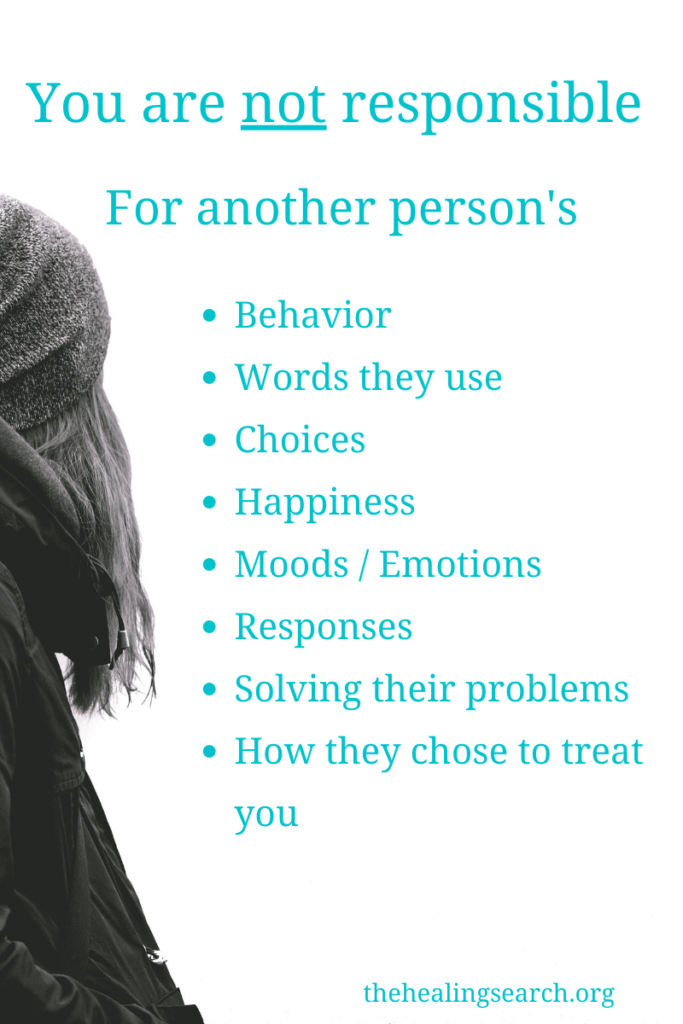
In the Bible the scapegoat carried the sins of the people out into the wilderness after another kid goat had been sacrificed for the people’s sins as a part of a sin offering. Together they offered atonement for the sins of the people and the sins were then carried away by the scapegoat.
While reading about this I realized how often I had felt like I was the scapegoat for others. Feeling like I had taken on the blame or responsibility for others so they could justify their own behavior. Growing up my well-being was often put aside so that the adults in my life did not have to fill the role that they should have. Scapegoating can happen in any relationship, however, it especially happens in unhealthy relationships.
What Being the Scapegoat Looks Like:
- When someone blames you for something they did to avoid taking responsibility for their own actions.
- To avoid taking responsibility for mistreating you, they blame you for their mistreatment of you.
- Being given responsibility for someone else’s happiness or moods.
- Being someone’s emotional dumping ground.
- Not having your boundaries respected.
- Getting gas lighted.
A clear pattern here is the lack of willingness of someone to take responsibility for their own actions. Instead they make someone else their scapegoat by placing the blame or the responsibility for their actions, behaviors, words, and/or their moods onto another person.
What it feels like to be the scapegoat:
- Depressing.
- Inducing anxiety when you have to deal with a particular person(s).
- Wondering what you did wrong.
- Feeling like you cannot do anything right in another person’s eyes.
- Wondering why nothing you do is enough to make someone happy, or to snap them out of their depression or to keep them from getting angry.
- Feeling like you are responsible for fixing all their problems.
- Walking on eggshells.
- Trying to do everything perfectly.
- Feeling overwhelmed.
- Feeling stressed.
- Poor self-image.
The weight of being the scapegoat is a heavy burden to carry, and it negatively affects the way a person views them-self. The act of scapegoating another person shows a lack of personal responsibility and a lack of respect for another person.
If, like me, you grew up without boundaries, then you may find it difficult to stand up to someone who is using you as their scapegoat. You may even feel powerless to stop it. For me, being the scapegoat was just the way things were growing up, and it was part of surviving. I can’t say that I have it all figured out. This one thing I do know, as I get better at protecting my boundaries and speaking up for myself the more I can see myself being able to stand up against being used as someone’s scapegoat. I am getting better at being able to see what I am responsible for and what others are responsible for. Standing up for myself is hard but I’m getting there. I know speaking up is not easy for everyone. So, if you struggle with it don’t give up because you can get to a place where it becomes easier.
You do not have to be someone’s scapegoat. No one is responsible for how another person behaves, their responses, their moods, their happiness, their words, or fixing their problems. We are only responsible for ourselves and how we respond to the things that come our way. When you notice someone is trying to use you as their scapegoat, remind yourself that you are not responsible for them.
No Comments